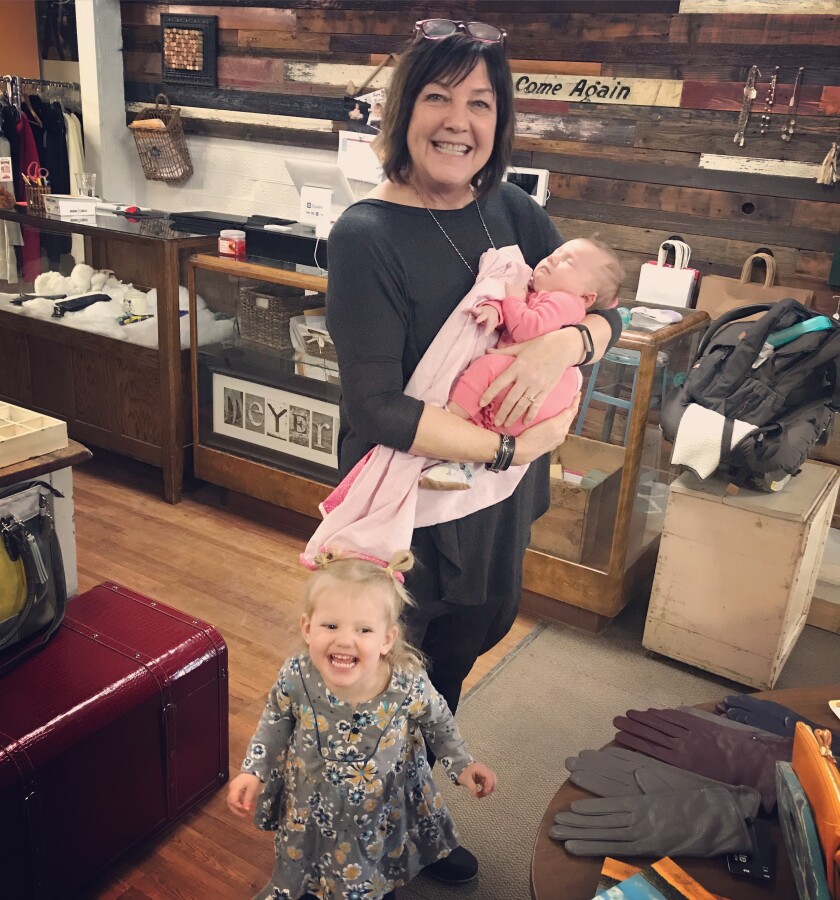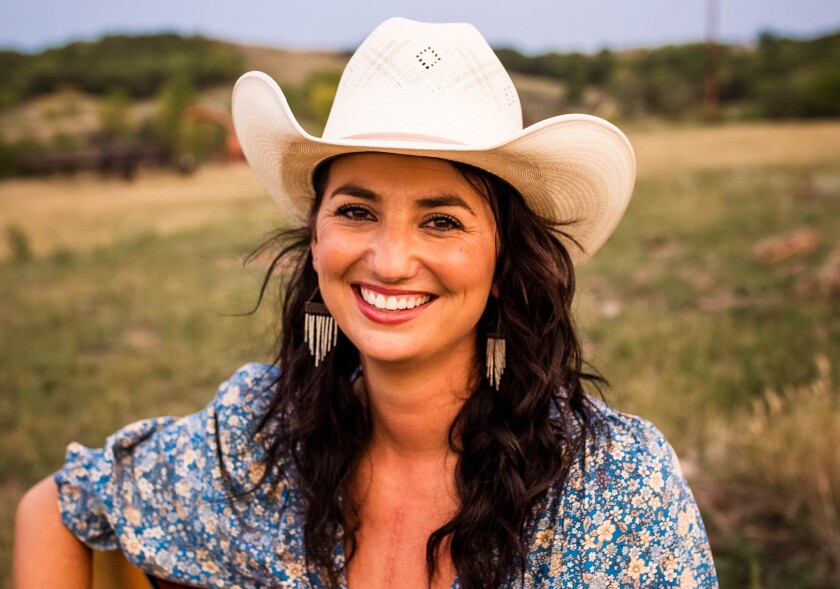WATFORD CITY, N.D. — My mom, who has owned a clothing store on our Main Street for over 12 years, is officially closing the doors on that chapter of her life this month. An end of an era, we’re calling it.
This store has been in the community for decades, under different management and ownership throughout the years, a staple in town for finding the perfect outfit for your wife or a holiday party.
One of my first memories of Meyer’s Department Store would have been when I was around 8 or 9 when our neighbor, Shirley, owned it. My best friend and I would try on the high-heeled shoes in the middle room and walk up and down the carpeted ramp to the green tile floor, pretending to be models.
I wouldn’t have imagined at that time that my own daughters would be doing the same thing all these years later, growing up between the pretty outfits hanging on the walls, pulling clothes from the racks and trying them on in the four-way mirror, picking candy from the dish and playing with the toys set up for the kids in various corners throughout the years.
Meyer’s Department Store is set to be a core memory for my oldest daughter. But don’t ask her to talk about it. She’s too heartbroken. Turns out her plans were to work there one day, when she became a teenager, which can’t happen soon enough in her opinion. What is she supposed to do now, she wonders out loud at the kitchen table through tears. How could Gramma possibly sell it?
She’s too young to understand what it means to be a 69-year-old small business owner so I just tell her she’ll have more time with Gramma now, which will probably mean more shopping with her, too.
Contributed / Jessie Veeder
My little sister and I both worked at the store at different times in its life, before our mom took it over and during the economy that was small-town North Dakota in the 1990s and early 2000s. At the time, we were the only clothing store in town and the talk about rural North Dakota business was going the way of combating outmigration and aging communities.
I was 16, sitting behind the counter watching my friends drag Main Street, selling blouses and jeans that fit women so well they traveled miles from neighboring towns to try them on. I learned that customer service wasn’t always about the sale, but maybe more importantly about just being there, being open, being available and reliable, and remembering names.
Our mom bought Meyers when she was almost 60. It was at the height of the oil boom in our community, a big transition for our small town as well as for a woman who spent the majority of her career in social work. I remember admiring her ability to shift and visualize her life in a different way. She didn’t have a roadmap to retail management, but she did have a handful of people who helped her learn and get acquainted and comfortable enough so she could do things her way.
And great customers and employees she loved.
That was her favorite part, hands down: the people. We always joke with her that her generosity wasn’t helping her make a profit, but the social worker in her couldn’t be changed. So many of her employees, past and present, thank my mom for her kindness and the open-minded environment in which they were able to learn and thrive enough to move on to the next phase of their lives successfully.
With the end of this era, it has become even more clear to me just what places like Meyer’s, or your hometown pharmacy, grocery store, café or hardware store can mean to a community like Watford City, through all the phases of its life. These days, we are seeing transitions in leadership in many businesses in our community — some in generations taking over and some with closures and, of course and thankfully, new ideas and services popping up on the corners and in reconstructed buildings and storefronts.

Contributed / Jessie Veeder
In the age of online shopping and virtual connection, I argue that storefront, although more challenging than ever, is more important, not less, for our community. Doors open for business and faces behind counters not only reflect the flavor of a community, but these are the places that support your basketball teams and 4-H livestock shows, special events and big ideas.
But most significantly — and I saw it so vividly with Mom’s store — these are the places where people remember your name and your size and your coffee order and your prescription. These are the grocery stores that will order the special cheese for you, that cater your weddings and baby showers and funerals. They employ your teenagers. These are the places where you meet your local friends to catch up and take your out-of-town friends and family to learn about you and where you come from. They are the places you go to be seen.
Singularly, you might not notice what it means to have these little shops there for you to feed you, clothe you and send you flowers, remember your name and your size and your coffee order. But put together, it’s everything that makes us a town and who we are in it.
And with that, I say congratulations to my mom on her retirement and this new phase in her life. Give her a minute for a celebratory glass of wine and she’ll make the move to envision her life in a new and wonderful way once again, which will probably find her spending more time in her coffee shop. She might even learn to make a latte. Stop in and say hi if you’re in town. Tell her what you’ve been up to, she’ll be so happy to host you.
Give it a few years and I’m sure you’ll find my daughter there, too, serving up coffee as the teenager behind the counter where she’s always wanted to be.
READ MORE OF JESSIE’S COMING HOME COLUMNS

Greetings from the ranch in western North Dakota and thank you so much for reading. If you’re interested in more stories and reflections on rural living, its characters, heartbreaks, triumphs, absurdity and what it means to live, love and parent in the middle of nowhere, check out more of my Coming Home columns below. As always, I love to hear from you! Get in touch at jessieveeder@gmail.com.

